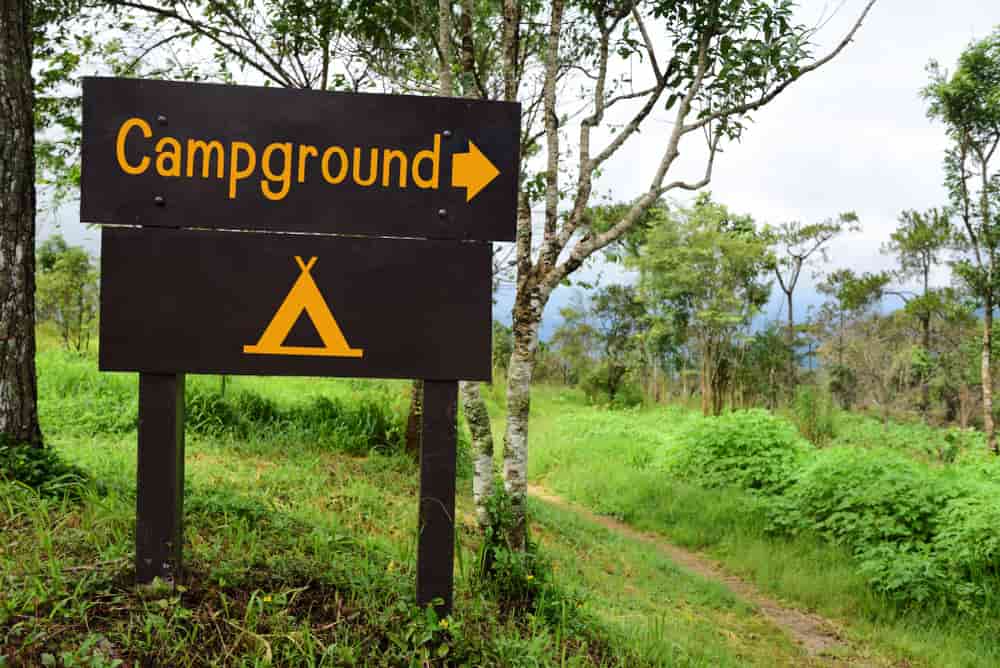Opening a campground presents an exciting and rewarding opportunity for outdoor enthusiasts and entrepreneurs alike. Whether you’re a nature lover seeking to share the beauty of the outdoors or a business-minded individual searching for a profitable venture, this comprehensive guide covers all the crucial steps to successfully establish and manage a campground, including finding the ideal location, crafting enticing amenities, and even exploring grants for starting a campground. If your dream is to own a campground and provide unforgettable outdoor experiences, now is the perfect time to transform that vision into a genuine reality.
Starting A Campground – Why Do It?
Contents
Well, opening a campground can be an incredibly rewarding venture for those who love the great outdoors and have a passion for hospitality. Not only does it provide an opportunity to create a unique and memorable experience for campers, but it also allows you to immerse yourself in nature and share that love with others.

One of the main advantages of starting a campground is the potential for financial success. With the rising popularity of camping and outdoor activities, there’s a growing demand for campgrounds that offer a range of amenities and services. By providing a well-maintained and welcoming space for campers, you can attract a steady stream of visitors and generate a reliable income.
Additionally, owning a campground allows you to enjoy a flexible lifestyle, as you can choose to live on-site and have the freedom to set your own schedule.
Starting your own campground offers a unique opportunity to combine your love for the outdoors with a profitable business venture. With the potential for financial success and the ability to create a memorable experience for campers, opening a campground can be a fulfilling and rewarding endeavor.
So, if you have a passion for nature and a desire to share that passion with others, starting a campground may be the perfect choice for you.
How to Start a Campground?
When starting a campground, there are several key steps to follow. The first step is to thoroughly research campground operations to understand the industry and its requirements.
After that, creating a business plan is crucial to outline the vision, goals, and strategies for the campground.
Then, focusing on funding becomes essential to secure the necessary resources.
Next, registering your business entity is necessary to establish legal status.
Finally, obtaining the necessary licenses ensures compliance with regulations and allows for the smooth operation of the campground.
Step 1: Research Campground Operations
Before diving into the exciting world of opening a campground, it’s essential to thoroughly research campground operations and understand the ins and outs of this unique business.
This first step is crucial because it will provide you with valuable insights into the industry, help you identify potential challenges, and allow you to make informed decisions throughout the process.
Start by studying successful campground operations in your area and beyond. Look at their business models, marketing strategies, and customer reviews. This will give you a sense of what works and what doesn’t, helping you develop a solid foundation for your own campground.
Additionally, it’s important to familiarize yourself with the legal and regulatory requirements involved in operating a campground. Research zoning laws, permits, licenses, and any other legal obligations specific to your location. Understanding these requirements will ensure that you are compliant with all regulations and avoid any potential legal issues down the road.
Additionally, researching campground operations will allow you to develop a comprehensive business plan. This plan will outline your target market, revenue streams, marketing strategies, and operational goals.
By conducting thorough research, you will be well-equipped to navigate the campground industry and increase your chances of success.
Step 2: Create a Business Plan
Take a moment to envision your dream campground, with happy campers gathered around crackling campfires, laughter filling the air, and the beauty of nature surrounding you. Now it’s time to bring that vision to life by creating a business plan that’ll guide you towards your goals.
A business plan is essential for any successful venture because it serves as a roadmap to help you navigate the challenges and make informed decisions. When creating a business plan for your campground, start by outlining your goals and objectives. What do you hope to achieve with your campground? Are you targeting a specific demographic or catering to a particular niche?
Clarifying your vision will not only help you stay focused but also make it easier to identify your target market and develop a marketing strategy. Additionally, your business plan should include a thorough analysis of your competition, market research, and financial projections. This will allow you to assess the feasibility of your campground and ensure that you have a solid plan in place to attract customers and generate revenue.
With a well-crafted business plan, you’ll be one step closer to turning your dream campground into a reality.
Step 3: Focus on Funding
Now let’s dive into the exciting part – securing the necessary funds to bring your dream campground to life!
Funding plays a crucial role in opening a campground as it requires a significant investment in land, infrastructure, and amenities.
There are various options available to explore when it comes to financing your campground venture.
One option is to seek traditional bank loans. Approach local banks or credit unions and present your business plan to secure a loan. Be prepared to provide detailed financial projections and collateral to increase your chances of approval.
Another avenue to explore is crowdfunding platforms. With a compelling campaign and a clear vision, you can attract individuals who are passionate about camping and the outdoors to invest in your campground.
Additionally, consider seeking out investors who specialize in the hospitality or tourism industry. They may be interested in partnering with you and providing the necessary funds in exchange for a share in your campground’s profits.
By exploring these funding options and carefully planning your financial strategy, you can take a significant step towards turning your campground dream into a reality.
Step 4: Register Your Business Entity
To register your business entity, you’ll need to choose a legal structure that suits your campground venture and fulfills any state requirements. The most common legal structures for campgrounds include sole proprietorship, partnership, limited liability company (LLC), and corporation.
Each structure has its own advantages and disadvantages, so it’s important to carefully consider which one is the best fit for your business.
A sole proprietorship is the simplest and most common structure for small businesses. It offers complete control and ownership, but also exposes the owner to unlimited personal liability.
A partnership is similar to a sole proprietorship, but involves two or more owners sharing the profits, losses, and liabilities.
An LLC is a popular choice for campgrounds as it provides personal liability protection for the owners, while offering flexibility in terms of management and taxation.
Lastly, a corporation is a separate legal entity from its owners, offering the highest level of personal liability protection, but also requiring more formalities and paperwork.
Once you have decided on the legal structure, you will need to register your business with the appropriate state agency. This typically involves filing specific forms and paying a registration fee. The exact requirements and process vary by state, so it’s important to research and follow the guidelines provided by your state’s Secretary of State or similar agency.
Additionally, you may need to obtain any necessary licenses or permits specific to operating a campground, such as health or environmental permits.
By properly registering your business entity, you can ensure that you are operating legally and protect yourself from personal liability.
Step 5: Obtain the Necessary Licenses
Once you’ve registered your business entity, it’s time to get the licenses you need to operate legally and ensure a smooth operation for your campground venture. Obtaining the necessary licenses is a crucial step in the process of opening a campground. These licenses will vary depending on your location and the specific services you plan to offer at your campground.
It is important to research and understand the regulations and requirements of your state or local government regarding campgrounds. To start, you will need to contact your local government office or licensing agency to inquire about the specific licenses you need. Some common licenses for campgrounds include a business license, health permit, and alcohol license if you plan to sell alcoholic beverages on site. Additionally, you may need permits for activities such as fishing, boating, or hiking if you offer these amenities at your campground.
Once you have determined the licenses you need, you will need to complete the necessary application forms and provide any required documentation or fees. It is important to carefully follow the instructions provided by the licensing agency to ensure a smooth application process. Keep in mind that the timeline for receiving your licenses may vary, so it’s advisable to start the application process well in advance of your planned opening date. By obtaining the necessary licenses, you can operate your campground legally and provide a safe and enjoyable experience for your guests.
Step 6: Find a Location
Looking for the perfect spot to set up your campground? Well, let’s dive into the exciting task of finding a location that will captivate your future campers and make your campground dreams come true.

First and foremost, consider the natural surroundings of the potential location. Look for a place that offers picturesque views, such as mountains, lakes, or forests. These natural features will not only enhance the camping experience but also attract more campers to your site.
Additionally, make sure the location has access to amenities and attractions like hiking trails, fishing spots, or nearby tourist destinations. This will provide your campers with a variety of activities to enjoy, making your campground a sought-after destination.
Next, consider the accessibility of the location. Look for a spot that is easily reachable by road and has ample parking space for campers’ vehicles. It’s also important to ensure that the location is not too far from major cities or towns, as this will make it convenient for campers to reach your campground. Additionally, consider the availability of public transportation options nearby for those campers who prefer not to drive.
Lastly, take into account the size and layout of the potential location. Ensure that it has enough space to accommodate the number of campsites you envision and that it provides a good balance between privacy and community. A well-designed layout will create a welcoming atmosphere and encourage campers to return year after year.
By carefully considering these factors, you can find a location that will not only meet the needs of your future campers but also make your campground a success.
Step 7: Build a Brand
Creating a strong brand is essential for establishing a unique identity that will differentiate your campground from competitors and resonate with potential campers. Building a brand involves creating a clear and compelling brand image that reflects the values and personality of your campground.
Start by defining your target audience and understanding their needs and preferences. This will help you develop a brand that appeals to your target market and sets your campground apart.
Once you have a clear understanding of your target audience, it’s time to create a visual identity for your brand. This includes designing a logo, choosing a color palette, and selecting fonts that align with your brand’s personality. Your visual identity should be consistent across all marketing materials, including your website, social media profiles, and signage.
Additionally, consider developing a brand voice that is authentic and resonates with your target audience. This will help create a memorable and cohesive brand experience that campers will associate with your campground.
By building a strong brand, you will not only attract campers but also establish a loyal customer base who will spread the word about your unique and unforgettable camping experience.
Step 8: Grow Your Team
After successfully building a brand for your campground, the next crucial step is to grow your team. As the business expands, it becomes essential to have a reliable and dedicated group of individuals who can help manage and operate the campground effectively. By bringing in more team members, you can delegate tasks, improve customer service, and ensure that the daily operations run smoothly.
Growing your team involves hiring individuals who are passionate about the outdoors and have a strong work ethic. Look for candidates who share your vision for the campground and are willing to go the extra mile to provide an exceptional experience for guests. When hiring, consider both full-time and part-time positions, depending on the size and needs of your campground.
Full-time employees can take on managerial roles, oversee maintenance, and handle administrative tasks, while part-time employees can assist with customer service, housekeeping, and groundskeeping. By diversifying your team, you can cover all aspects of running a campground and provide adequate support for guests.
Additionally, as you expand your team, it’s crucial to create a positive work environment that fosters teamwork and open communication. Encourage collaboration among your employees and provide opportunities for growth and development. Regular staff meetings can be a platform to address any concerns, discuss new ideas, and ensure everyone is on the same page.
By investing in your team’s well-being and professional growth, you can create a motivated and dedicated workforce that contributes to the success of your campground.
Step 9: Focus on Amenities
To truly enhance your guests’ experience, prioritize the amenities that’ll make their stay unforgettable. Consider the needs and preferences of your target market and invest in amenities that’ll set your campground apart from the competition.
Start by providing well-maintained restroom and shower facilities. Cleanliness and functionality are key in this area, as guests’ll appreciate having access to clean and comfortable facilities during their stay.
Additionally, consider adding a camp store where guests can purchase basic necessities and camping supplies. This convenience will make their stay more enjoyable and save them from having to leave the campground to find essential items.
Another amenity to focus on is recreational activities. Depending on the location and target market of your campground, this could include hiking trails, fishing ponds, swimming pools, or playgrounds. Outdoor enthusiasts’ll be drawn to a campground that offers a variety of activities to keep them entertained. Providing well-maintained and well-designed recreational areas will not only attract guests but also encourage them to stay longer and return in the future.
Lastly, consider offering unique amenities that’ll make your campground stand out. This could be anything from a pet-friendly area with designated dog parks to a communal fire pit where guests can gather and socialize. These special touches’ll create a memorable experience for your guests and help build a positive reputation for your campground.
Step 10: Opening Time
Don’t forget to consider the best time to open your campground for maximum success. The timing of your campground’s opening can greatly impact its success. It’s important to consider factors such as weather, holidays, and local events when deciding on the opening date.

For example, if your campground is located in a region with harsh winters, it may be best to open in the spring when the weather is more favorable for camping. This will attract more campers who are eager to enjoy the outdoors after a long winter.
Additionally, consider scheduling the opening around major holidays or local events that can draw in a larger crowd. Opening during a long weekend or during a popular festival can help generate buzz and attract more visitors to your campground.
In addition to considering the timing of the opening, it’s also crucial to plan for a smooth start. Make sure you have all the necessary permits and licenses in place before the opening date. This will ensure that you’re operating legally and avoid any potential issues down the line.
It’s also a good idea to have a marketing plan in place to promote your campground’s opening. Utilize social media, local advertising, and word-of-mouth to create awareness and generate interest. Offering special promotions or discounts for the first few weeks can also help attract campers and build a positive reputation for your campground.
By carefully considering the timing of your campground’s opening and planning for a successful start, you can set yourself up for maximum success in the camping industry.
Conclusion
In conclusion, starting a campground is a rewarding venture for outdoor and hospitality enthusiasts. This guide provides a step-by-step plan for navigating planning, financing, and implementation, covering everything from market research to permits and licenses. Emphasizing exceptional customer service, facility maintenance, and effective marketing, owners can create memorable experiences, garner positive reviews, and encourage repeat business. With careful planning and dedication, opening a campground lets you share your love for nature. So, for those ready to embark on this adventure, it’s time to start building your campground.